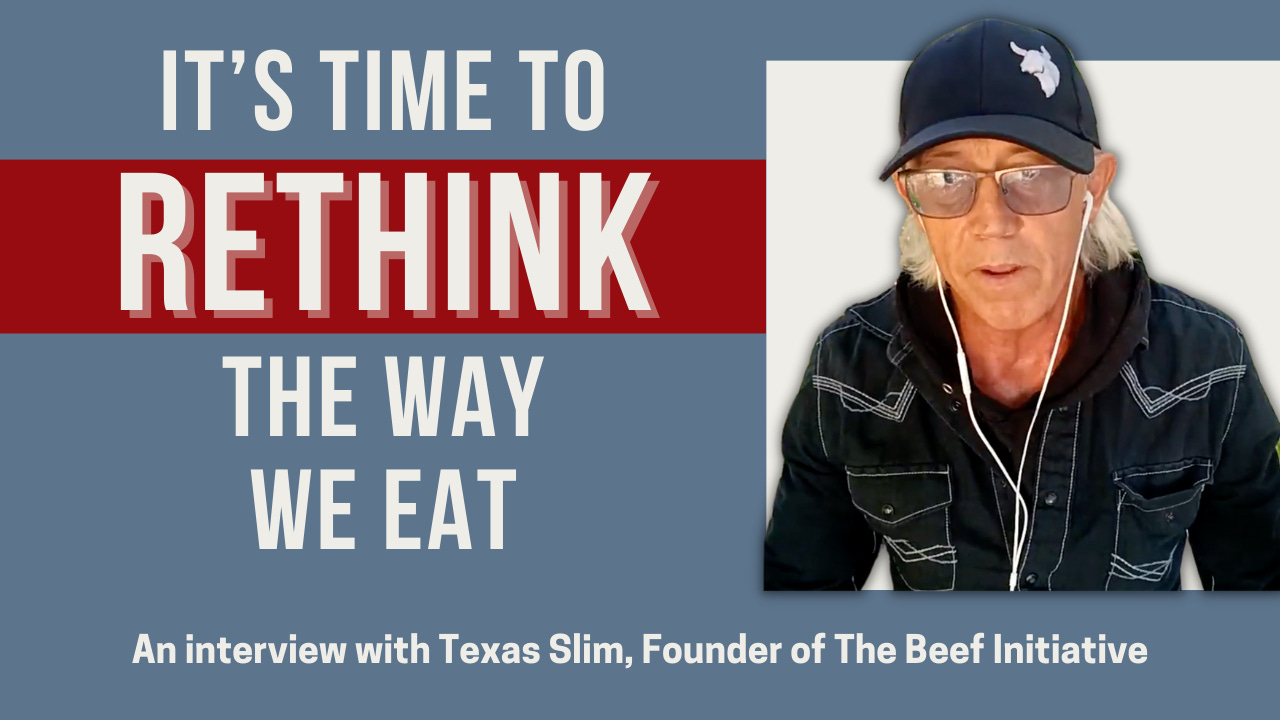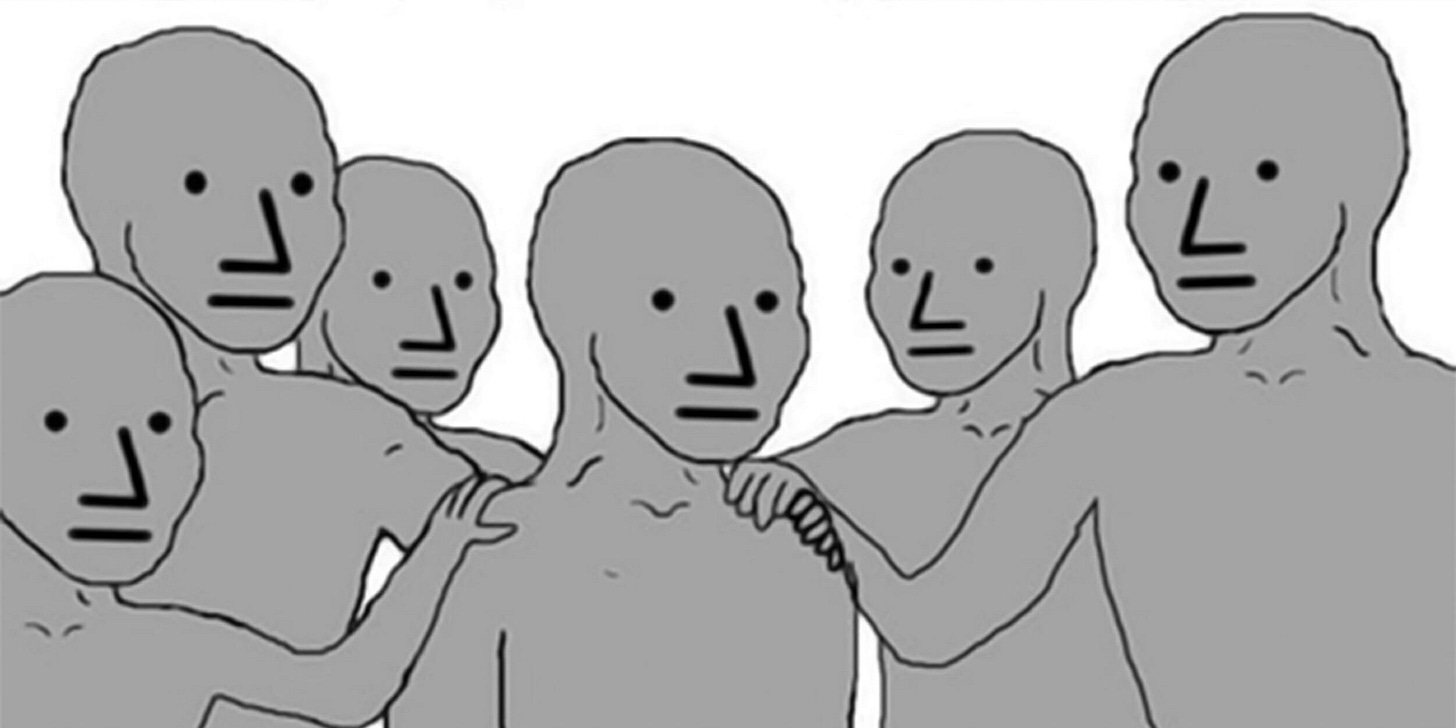Notes from the edge of civilization: Oct. 15, 2023
Launching our new podcast!! Plus, hamburgers with a side of hormones. Inflation as a sign of collapse. The tyranny of consensus, and how to avoid it.
“Food has changed, folks, and it’s about to change big time. This is what I’m trying to get people to understand… we think there’s an abundance of pure nutrition in this nation… we’re not. In the United States, we are a food desert right now.”
Collapse Life is pleased to announce the launch of our new podcast series, featuring a collection of notable people who can help us understand the way the world is changing right now, what we need to do to prepare for what’s to come, and how we can make a positive difference.
Our first episode features Texas Slim of The Beef Initiative, an organization working to make clean food more localized and secure.
Check us out on Rumble or YouTube (be sure to like and subscribe while you’re there!)
If you’re concerned about what you eat, you’re definitely going to want to check out that podcast.
You may also be interested to note that most of America’s most popular fast food meals contain at least trace amounts of veterinary antibiotics and hormones, according to a new study.
The Epoch Times reports:
With the exception of Chipotle and Subway, all the food samples tested positive for veterinary drugs.
The drug concentrations in all of the food samples were below 2 micrograms per kilogram, which is significantly below the Food and Drug Administration's (FDA) acceptable daily intake.
Mr. Fagan [chief scientist at the Health Research Institute, the lab that tested the food samples] highlighted that the FDA's acceptable intake levels are meaningful for checking acute poisoning. Yet in the case of fast food, which some people consume daily, there is a concern of chronic poisoning due to accumulation of toxins.
We should also caution that what the government deems an acceptable daily intake might still be far more than you should consume. As we recently pointed out, for example, the EPA considers 3 parts per billion of atrazine acceptable for drinking water standards. But researcher Tyrone Hayes showed that the pesticide could induce chemical castration in frogs who were exposed to as little as 0.1 parts per billion. What’s a safe limit for humans? Who knows? Wouldn’t you rather err on the side of none?
Based on that study, you may think Chipotle is a safer bet than those other fast food joints. If so, you could be in for a bit of sticker shock. The chain says it is planning to hike prices to “offset inflation.”
While the White House and their lapdog financial media partners keep trying to tell us that the economy is fine, unemployment is low, and inflation is being held in check, Americans know what’s up because they can feel it every time they reach for their wallets.
When we keep getting lied to by the people entrusted to lead our society, things begin to get hairy. It all starts to look eerily like a catastrophe is coming. This week on Collapse Life, we look back at history to review some of the signs of a rocky road ahead.
Recognizing the signs of societal collapse
History shows us some important mile markers on our way to impending demise.
It’s a weird feeling when you look around and see things looking very clearly a certain way, but then hear the media telling quite a different story. The term ‘gaslighting’ comes to mind. We’ve all seen it and felt it on numerous occasions, especially over these past few years. The daily cognitive dissonance has even spawned a whole cottage industry of ‘Clown World’ memes and paraphernalia.
So if we’re all seeing the craziness happening around us, why aren’t more of us speaking out? Why aren't we having daily, continuous conversations about it all?
An article from the 1970s about ‘the Abilene Paradox,’ is instructive in describing the illusion of consensus that sometimes causes us to make deliberate decisions that go against our individual preferences, simply because of a lack of open communication.
Are we on the road to Abilene?
The tyranny of conformity can cause groups to make decisions that go against each member's individual preference. It doesn't have to be that way.
Resisting the urge to conform is easier said than done. A fascinating Substack from a few months ago reminds us:
“The brain is commonly regarded as a thinking machine, but it’s more often the opposite: a machine that tries to circumvent thinking. This is because cognition costs time and calories, which in our evolutionary history were scant resources.”
The author, Gurwinder, writes about how the Internet age has made it increasingly difficult to distinguish real from fake, fact from reality, and human from bot.
The rise of botlike behavior over the past decade has led to the creation of a meme: the NPC, or Non-Player Character. Originally a term to describe video game characters whose behavior is completely computer-controlled, it now also refers to real world humans who behave as predictably as video game NPCs, giving scripted responses and engaging in seemingly mindless, automated behaviors.
Naturally, everyone believes that their political opponents are NPCs, and no one ever suspects that they themselves are. But being an NPC is not about what you think or do, but how you determine what to think or do. And when judged by this standard, we are all, to some extent, NPCs. People become NPCs because knowledge is infinite and life is short; they rush into beliefs because their entire lives are a rush. But there’s a better way to save time than speeding through life, and that is to prioritize.
Ultimately the real crime of NPCs is not that they cheat their way to forming beliefs, but that they feel the need to have such beliefs at all. Trying to form an opinion on everything leaves them no time to have an informed opinion on anything.
Gurwinder offers a solution, which is to divide issues into tertiary, secondary, and primary importance. He suggests that tertiary issues are ones we don’t need to care about — and, surprisingly, this category includes the vast majority of things.
Consider what difference it will make whether or not you know something, and if it won’t make a difference, resolve to not have an opinion on that thing. Don’t even take a shortcut to beliefs about it. Just accept that you don’t know.
Secondary issues are things that interest you, but which you don’t need to get exactly right. On these issues you must take shortcuts, so take the best shortcut there is: adversarial learning. Seek out the best advocates of each side, and believe whoever is most convincing. If that’s too much work, get your news from websites like AllSides or Ground News that allow you to see what each side is saying about an issue.
He proposes saving your time and brain power to focus on primary issues, i.e., “the ones you care about most, the ones you’re determined to get right. Use the time you’ve saved from ignoring tertiary things and taking shortcuts to secondary things to learn everything there is to know about primary things.”
When tempted to form an opinion, or when you feel tyrannized by consensus and pulled into silently agreeing to something you don’t want to agree with, ask yourself whether the issue is of primary, secondary, or tertiary importance to you, Gurwinder says.
“On tertiary issues, be silent. On secondary issues, be humble. On primary issues, be passionate.”







Spot on. Great read.